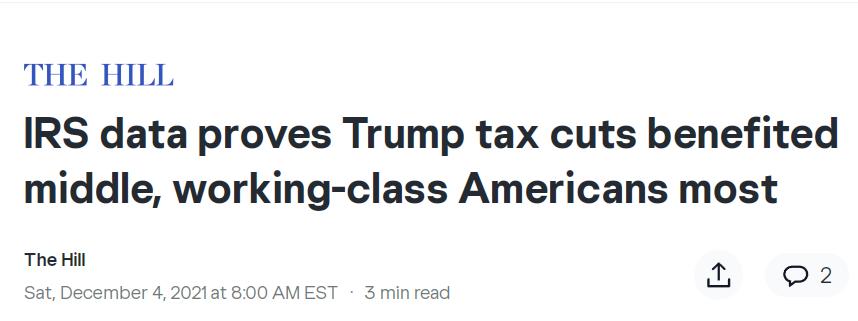
The Democrats’ push to fund the BBB Act through tax hikes on wealthy households, claiming they unduly benefited from the 2017 reforms, doesn’t match the facts. IRS data reveals middle- and working-class taxpayers were the top beneficiaries of those reforms, receiving substantial tax cuts. Wealthier earners ended up shouldering a greater share of the tax burden, and the code itself became more progressive. Lower-income filers decreased as economic mobility rose. Repealing these reforms risks undermining recent gains in poverty reduction and prosperity—outcomes Democrats argue they want but now seem poised to jeopardize.
THEHILL: IRS data proves Trump tax cuts benefited middle, working-class Americans most
TL;DR
- Build Back Better (BBB) Act faces Senate challenge with 50-50 partisan split
- Key Democrats, Sinema and Manchin, skeptical over $2.4 trillion bill cost
- Democrats propose funding through IRS expansion and tax hikes on wealthy
- IRS data contradicts claims that top earners unfairly benefited from 2017 tax reform
- Working and middle-income groups saw the largest tax cuts under Republican reforms
- Higher earners paid a larger share of total tax revenue after 2017 reform
- Data shows the tax code became slightly more progressive, not regressive
- Lower-income filer numbers declined, middle-to-upper income filer numbers rose post-reform
- 2017 reform led to economic mobility, reduced poverty, and boosted prosperity